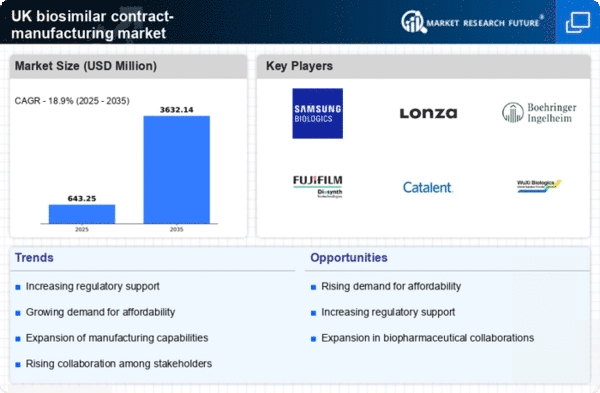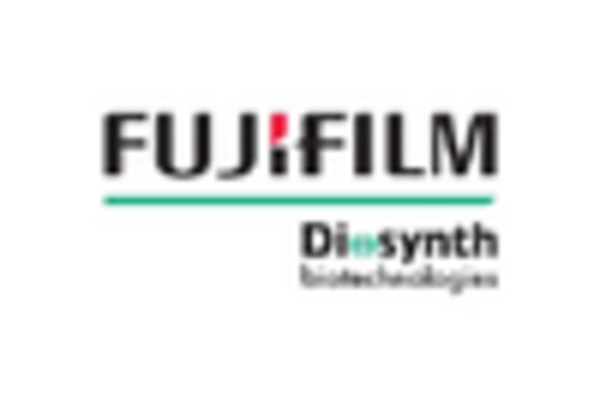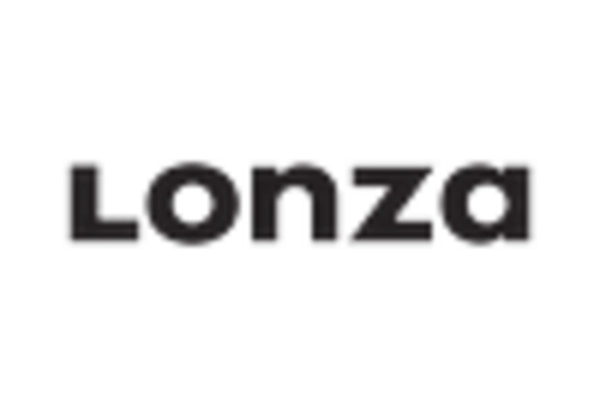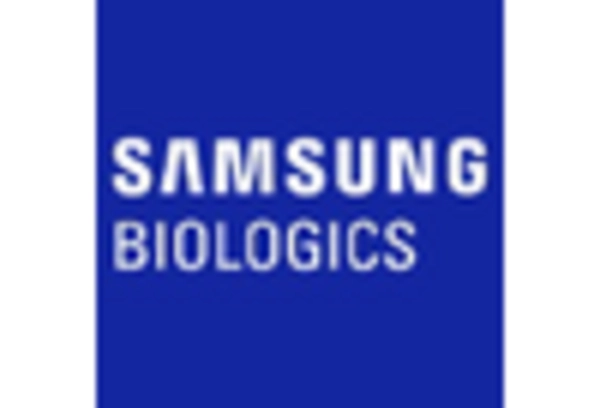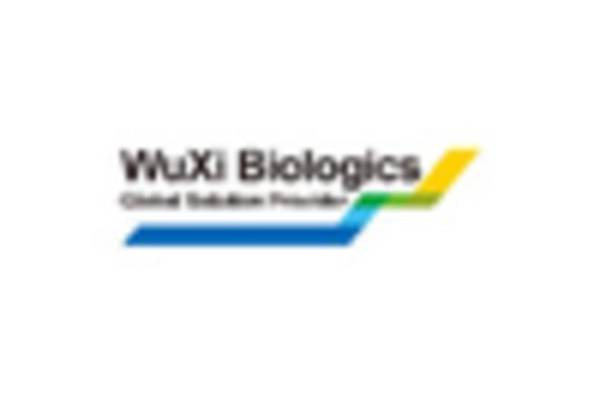Growing Patient Population
The expanding patient population in the UK, particularly those suffering from chronic diseases, is a significant driver for the biosimilar contract-manufacturing market. With an estimated 15 million individuals living with chronic conditions, the demand for effective and affordable treatment options is escalating. Biosimilars, which mimic the efficacy of original biologics at a lower cost, are becoming increasingly vital in addressing this healthcare challenge. The NHS's commitment to improving patient access to these therapies further supports the growth of the biosimilar contract-manufacturing market. As more patients require treatment, the need for contract manufacturers to produce high-quality biosimilars will likely intensify, creating opportunities for innovation and collaboration within the industry. This trend indicates a robust future for the biosimilar contract-manufacturing market as it adapts to meet the needs of a growing patient demographic.
Increasing Healthcare Expenditure
The rising healthcare expenditure in the UK is a pivotal driver for the biosimilar contract-manufacturing market. As the National Health Service (NHS) allocates more funds towards innovative therapies, the demand for cost-effective biosimilars is likely to surge. In 2025, healthcare spending in the UK is projected to reach approximately £200 billion, indicating a robust investment in pharmaceuticals. This financial commitment encourages the development and manufacturing of biosimilars, as they offer a more affordable alternative to expensive biologics. Consequently, contract manufacturers are positioned to capitalize on this trend, providing essential services to pharmaceutical companies aiming to enter the biosimilar market. The increasing focus on budget-friendly healthcare solutions suggests a promising landscape for the biosimilar contract-manufacturing market, as stakeholders seek to balance quality and cost.
Regulatory Support for Biosimilars
Regulatory support for biosimilars in the UK is a crucial driver for the biosimilar contract-manufacturing market. The Medicines and Healthcare products Regulatory Agency (MHRA) has established a clear framework for the approval of biosimilars, which fosters confidence among manufacturers and investors. This supportive regulatory environment is expected to facilitate the entry of new biosimilars into the market, with an anticipated increase in approvals by 20% over the next few years. As more biosimilars gain regulatory clearance, the demand for contract manufacturing services is likely to rise, as pharmaceutical companies seek reliable partners to produce these products. The proactive stance of regulatory bodies not only enhances market stability but also encourages innovation within the biosimilar contract-manufacturing market, paving the way for future growth.
Technological Advancements in Production
Technological advancements in biomanufacturing processes are transforming the biosimilar contract-manufacturing market. Innovations such as single-use bioreactors and continuous manufacturing techniques are enhancing production efficiency and reducing costs. In the UK, the adoption of these technologies is expected to increase, with a projected growth rate of 10% in the biomanufacturing sector by 2026. These advancements not only streamline production but also improve the scalability of biosimilar manufacturing, allowing companies to respond swiftly to market demands. As contract manufacturers integrate cutting-edge technologies, they can offer more competitive pricing and higher quality products, thereby attracting pharmaceutical companies looking to develop biosimilars. This technological evolution is likely to play a crucial role in shaping the future landscape of the biosimilar contract-manufacturing market.
Rising Competition Among Biopharmaceutical Companies
The increasing competition among biopharmaceutical companies in the UK is driving the growth of the biosimilar contract-manufacturing market. As more companies enter the biosimilar space, the need for efficient and cost-effective manufacturing solutions becomes paramount. This competitive landscape is prompting firms to seek partnerships with contract manufacturers that can provide specialized expertise and scalable production capabilities. The biosimilar market is projected to grow at a CAGR of 15% through 2027, indicating a robust opportunity for contract manufacturers to expand their services. As biopharmaceutical companies strive to differentiate their products, the demand for high-quality biosimilars produced by contract manufacturers is likely to increase. This trend suggests a dynamic and evolving biosimilar contract-manufacturing market, where collaboration and innovation are essential for success.


